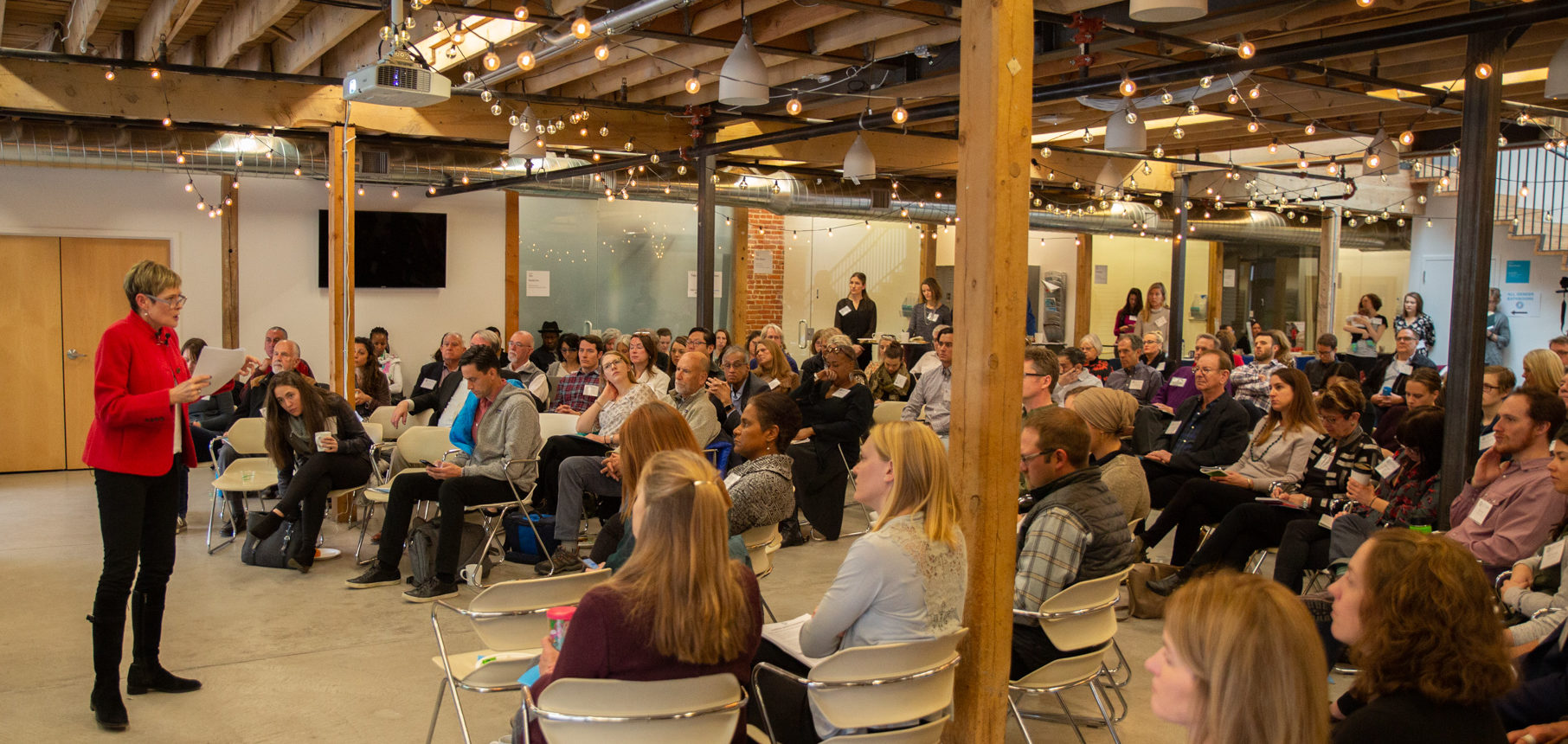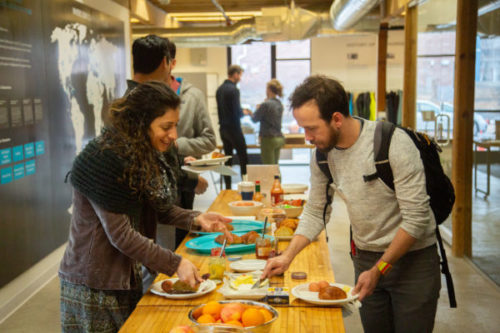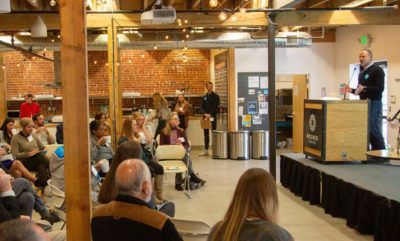Symposium 2019 Recap

By Joanne Lu
The development community is filled with organizations and individuals all trying to tackle the world’s most pressing issues. But how much more could we accomplish if we worked together? It seems like a basic question, but one the Posner Center for International Development believes isn’t being asked enough.
Since its inception in 2013, the Posner Center has sought to foster greater collaboration in global development. Last month, we took the next step in that journey with the launch of Posner’s first annual symposium – a space to share best practices in collaboration and ask what that even means.
It wasn’t your typical symposium, nor was it meant to be. As Posner’s Executive Director Burke Fishburn put it: “Think intimate pedagogy – or a mosh pit with wise people.”
Nearly 100 people kicked off the “mosh pit” on February 21 with a vibrant social mixer. And by 8 a.m. the next morning, 165 participants, 34 speakers and 18 volunteers were back for a full day of sharing, learning, conversation and laughter in Posner Center’s historic 25,000 sq. ft. collaborative workspace in Denver’s Curtis Park neighborhood.

Joan Parker, President and CEO of Counterpart International, flew in from Virginia to deliver the keynote address. Other speakers shared case studies and emerging ideas, led 12 breakout sessions on gender, conflict, data and other topics and discussed on a chain-reaction panel whether global development is broken. In an interactive Oxford-style debate, we even questioned the very premise of the symposium: Is collaboration a best practice in global development?
“There’s a lot of overlap and reinventing the wheel in the development sector,” says Elizabeth Ellis, CEO of Posner Tenant iDE. “But how can we come together to build on the lessons learned from each organization and to ensure that collectively, we’re using the limited resources that are going toward development as effectively as possible? A symposium like this opens up those conversations.”
By their own admission, the Posner team was willing to risk failure with this first event of its kind. But it was fitting for a day focused explicitly on collaboration, because “by definition, collaboration involves taking big risks and stepping beyond yourself to become part of a more collective journey,” says Joan Parker. To that end seven sponsors and two partners (Engineers Without Borders USA and the University of Denver’s Josef Korbel School of International Studies) stepped up to support the event.

But Diana Walker – founder and CEO of Walker Impact Strategies and a board member of both the Posner Center and Counterpart International – thinks the risk paid off. She was thrilled to see people flying in from D.C. and other states to participate in a symposium that wasn’t just another meeting.
“Even in some of the most prestigious conferences, you hear the same things over and over again,” says Walker. “I really heard some different things [at the symposium] and people pushing ideas that I’d love to see grow.”
Tim Prewitt, senior advisor and former CEO of iDE, says the Posner Center is leading Coloradans to “engage in a global dialogue that’s not based on a charity model.” Joan Parker is eager to see that dialogue – and Colorado’s more collaborative “frontier spirit” – spread to D.C. and beyond.
“Posner Center has the opportunity to be the center of a conversation and a set of collaboration principles that we desperately need,” says Parker.
Eventually, the Posner team plans to scale up the symposium into an international conference. In the meantime, the first step to continue the dialogue is the “Posner Center Report on Collaborative Global Development,” which will be published in the summer or early fall. This, too, will evolve with time into a journal. But for now, expect case studies, research, emerging ideas and commentary that highlight the collaborative best practices of the Posner community. Like the symposium, it’ll be substantive, but engaging – like a mosh pit with wise people.
About the Author
 Joanne Lu is a freelance journalist who covers the fight against global poverty and inequity. She’s a regular contributor to NPR Goats and Soda and UN Dispatch and has also written for The Guardian, Humanosphere, Global Washington and War is Boring. Follow her on Twitter: @joannelu
Joanne Lu is a freelance journalist who covers the fight against global poverty and inequity. She’s a regular contributor to NPR Goats and Soda and UN Dispatch and has also written for The Guardian, Humanosphere, Global Washington and War is Boring. Follow her on Twitter: @joannelu
